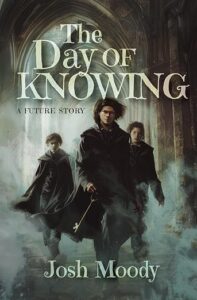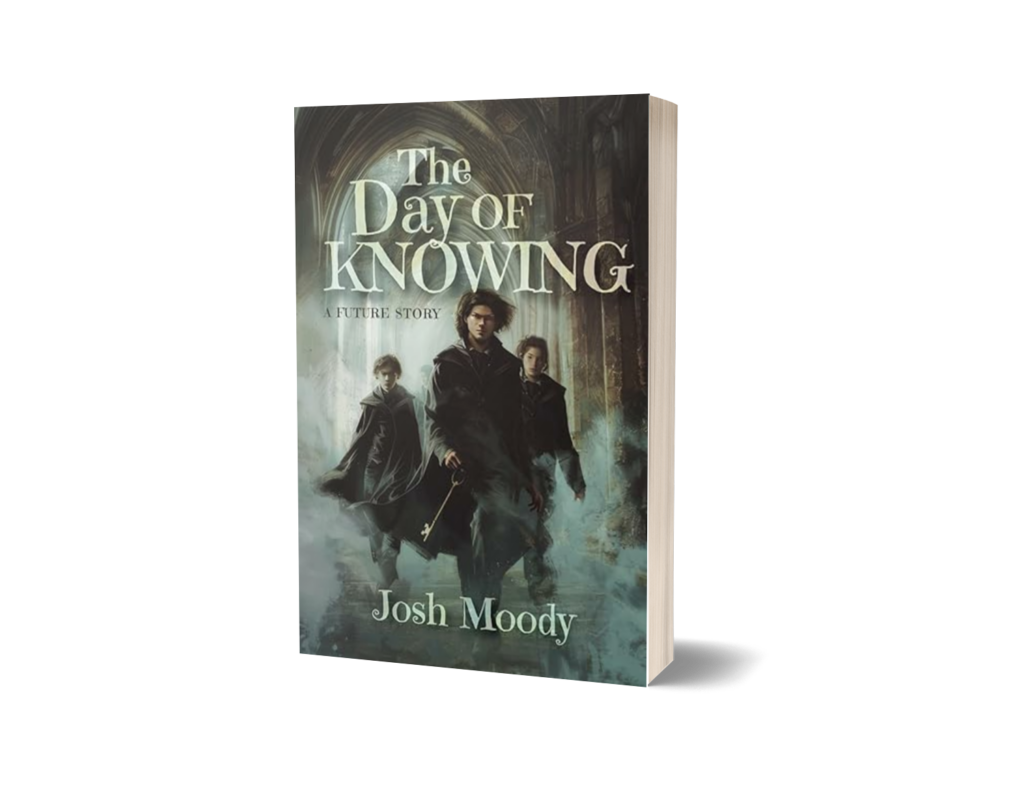The Day of Knowing: An Interview
January 8, 2025 / by Dr. Josh Moody

Pastor Josh Moody’s latest book, The Day of Knowing, is now available. With this latest venture into fiction, God Centered Life had some questions we needed to find the answers to!
Why did you write a science fiction book?
I’ve always loved science fiction. I think it was my older brother who introduced me to Isaac Asimov’s Robot series when I was quite young. Around the same time I went to the storied release of the original Star Wars. I think I saw that film in the cinema at least twice. There was something magical about that first movie. Quite different from anything else. Hopeful. Later I started to read a bit more Asimov, and particularly fell in love with his Foundation series. His ability to create a whole future universe that made sense on its own terms was captivating. Of course, fantasy is normally classed as a quite different kind of literature to science fiction, though in some ways they overlap. They are both, after all, creating parallel universes to explore. And I first read Tolkien’s The Lord of the Rings in a one-week sitting while I was convalescing at home as maybe a 10 year old, or around then—I don’t remember exactly. At any rate, I’ve long been fascinated by the genre.
But this story had a slightly different origin.
What do you mean?
One summer, during vacation, I chatted with a pastoral colleague and he asked me what I wanted to write next. I told him that I had various projects in my mind but somewhat whimsically I’d always wanted to write a science fiction story. He told me I should write that! I took him at his word, and during the summer holidays I wrote a part of the book each morning, and then read it to one my children before lunch. There was something special about knowing that I had an audience in mind as I was writing, and who would give me immediate feedback as to what worked and what didn’t!
Are there any deeper considerations to this book or is it just all fun and entertainment?
Entertainment is an interesting word, with somewhat suspicious connotations in Christian theology. It’s a bit like the word “pastime.” You can almost see our Puritan forebears shuddering at the thought that we would try and invent something to “pass the time” (or entertain ourselves) rather than be up and doing and securing our—and others—eternal warfare. I do resonate with that attitude. I don’t like wasting time. But story and literature are not merely pastimes or entertainment. The point of a story is to give you an opportunity to explore a set of realities that you cannot in real life, in such a way that they then frame your approach to real life. The best stories all do this; it’s the magical art of a Shakespeare or a Victor Hugo or a Dostoyevsky. What they are writing about is not “real” (in the way that, say, a history book is real, or a science textbook is real), but while they are writing about made-up realities, in many ways they are describing experiences that are far more accurate to the lived, and real, experiences of human beings than the more mundane kinds of writing. We live in story—that’s how we make sense of the innumerable perceptive options all around. We all telling ourselves a story that shapes how we live our lives. So a story (whether science fiction, fantasy, or novel) is an art intended to help us tell better stories about our real lives. This one has a particular set of thoughts and feelings in it that the reader will then, as he or she feels, enter into and transmogrify to their own experiences of life.
Any other parting words?
I hope people enjoy it. It reminds me of watching Paul McCartney being interviewed once about a new song he had written. The interviewer asked him what he hoped people would get out of the song. “I hope they like it,” he said in his inimitable McCartney Liverpool tones. Somewhat similarly, I hope this is a story that those who read it will enjoy.
WANT MORE?
To receive God Centered Life articles directly in your inbox, as well as other resources, click "subscribe" and fill out the information.

